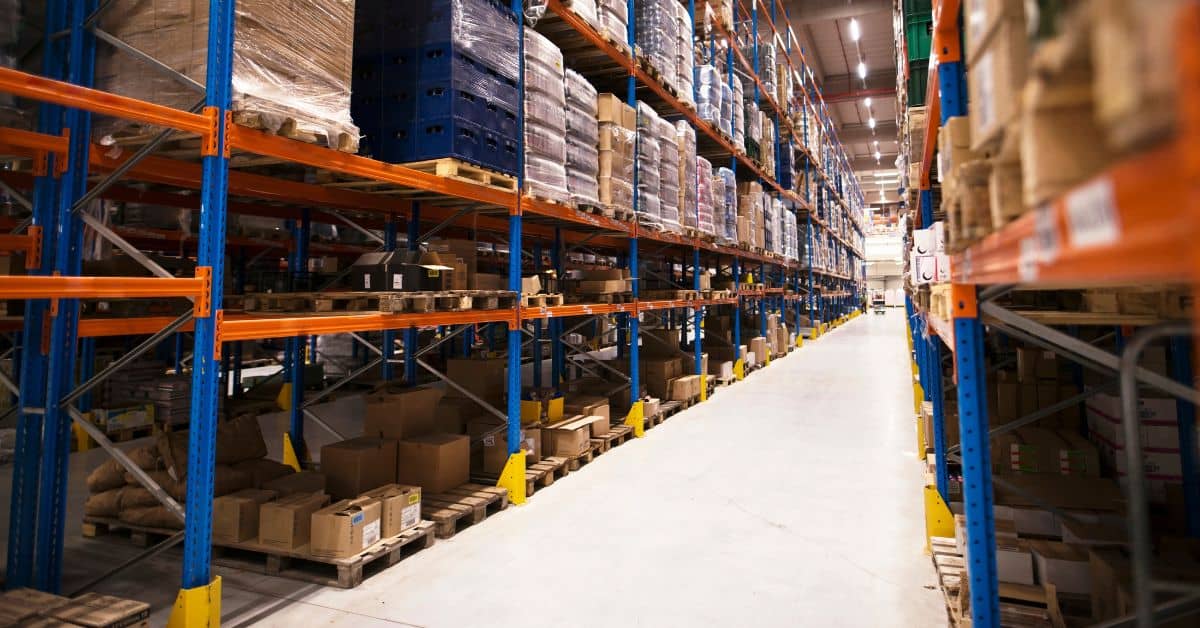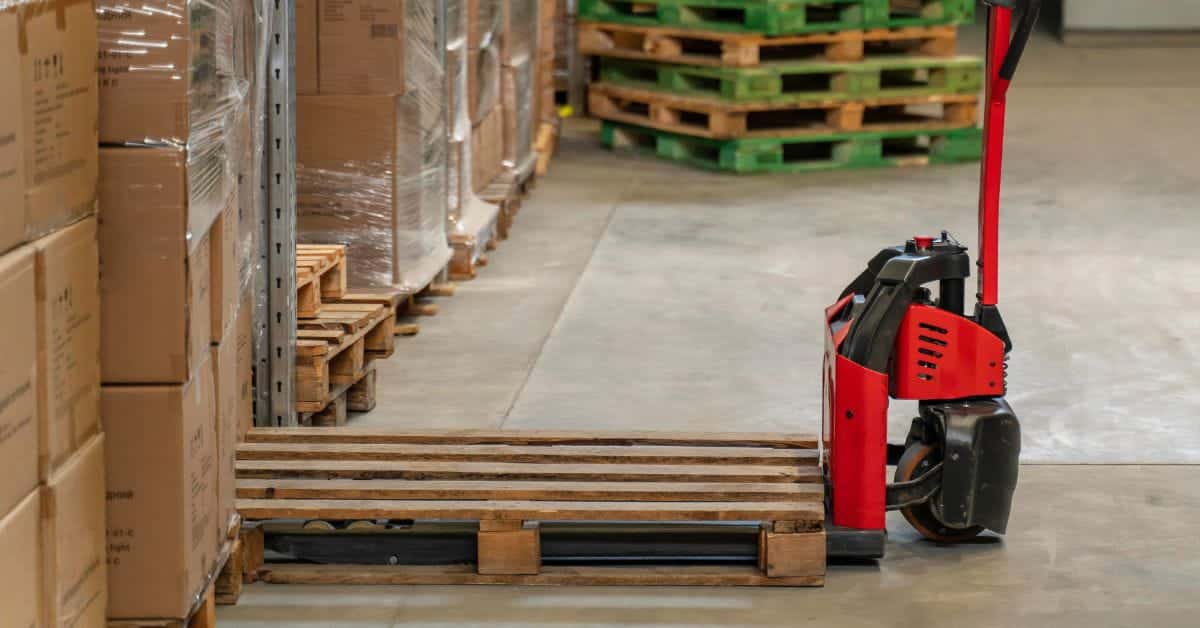Warehouse: Why It’s Vital to Business
Contents

Businesses involved in manufacturing or distribution need to have products ready to sell to customers. They may produce and ship immediately or stock items before distributing them. To store these products, businesses use warehouse.
This article introduces what a warehouse is, its benefits, and its importance to businesses, as well as the different types available.
What is a Warehouse?
A warehouse is a place to store products, raw materials, or items before delivering them to customers, partners, or relevant agencies. Warehouse serves as a resting place for goods until they are moved and transported to those in need, whether for production or sale.
Modern warehouse uses tools and technologies to improve storage, preparation, and operational standards. Examples include forklifts for moving items, different types of pallet racks, and pallet management systems to aid warehouse staff.
Each warehouse may have different functions and storage processes. Some store items for specific orders, while others include steps like inspection, packaging, and delivery. This results in various names based on their purpose, such as distribution centers, sales centers, and storage facilities.
Importance of Warehouse to Businesses
Warehouses are essential for manufacturing, industrial, and wholesale-retail businesses. They store raw materials, semi-finished products, finished goods, and parts that factories may not have space for. Thus, warehouse provides a safe and efficient storage option for various products.
Another benefit of warehouse is serving as a central point for receiving, storing, collecting, transferring, packing, and shipping goods. They also handle returns, enabling businesses to offer services like 24-hour delivery, product tracking, and returns. Warehouse supports production, storage, and distribution, making them indispensable for modern businesses.

Benefits of Warehouse
Besides storing and ensuring the quality and safety of products, warehouse offer other advantages, such as:
Supporting Production
Businesses can use warehouse and management systems to support production by storing raw materials, components, or parts awaiting the next production or assembly step.
Expanding Business Opportunities
Building or renting a warehouse helps businesses grow by providing space for inventory to meet orders, store parts or materials, and quickly distribute goods, enhancing competitiveness.
Smooth Packing Process
Warehouse allows businesses to consolidate and pack products, sorting them by category or order. This improves packing efficiency and streamlines the next steps, like transportation.
Addressing Space Limitations
A key benefit of warehouse is increasing storage space, reducing congestion in factories with large machinery and limited space. Warehouse can also be modified, like adding temperature control or pallet management systems, to enhance storage efficiency.
Types of Warehouse
Warehouse can be classified into various types with subcategories. Generally, they fall into three main types based on their characteristics and functions:
By Business Type
1. Public Warehouse
Businesses or individuals can rent space in public warehouse, often sharing space with others. Public warehouse is suitable for those with limited products or startups with small budgets.
2. Private Warehouse
Businesses build private warehouse to store their products or conduct operations, allowing for quality, cost, and management control.
By Operations
1. Distribution Centers (DC)
These warehouse stores goods and links manufacturers with retailers, storing and delivering products based on demand. DCs store manufacturers’ goods and deliver them to retail stores, eliminating the need for retailers to stock products.
2. Cross Dock Warehouse
These warehouse receives and ship goods simultaneously or transfer them between vehicles, serving as transfer stations. They store goods for shorter periods than DCs as they mainly transfer products without stocking them.
3. Fulfillment Centers
These warehouse receives, pack, and ship goods for affiliated or other companies. They also store products, making them increasingly popular for supporting online businesses.
By Product Type
1. General Warehouse
These warehouse store general goods, such as tools, finished products, or consumer items.
2. Cold Storage Warehouse
These warehouse store fresh products with 24-hour temperature control to maintain freshness, such as meat, vegetables, fruits, or seafood.
3. Hazardous Goods Warehouse
These closed warehouse stores chemicals, fuels, flammable materials, or other hazardous items. They ensure proper segregation, storage, pollution control, and compliance with relevant authorities.
4. Special Warehouse
Typically small, these warehouse stores high-value items, cosmetics, medicines, or certain chemicals. They require appropriate temperature and humidity control to maintain product properties and extend shelf life.
Warehouse is vital for various business activities, including storing and distributing goods, packaging, and transporting them to customers. They simplify logistics management and create future business opportunities.
Warehouse is crucial for many business activities, including storing and distributing products, packaging, and shipping to customers or consumers. They streamline logistics management and create future business opportunities. For warehouse operators or businesses with their own warehouse needing quality warehouse equipment, such as wooden pallets for rent/purchase, pallet racks, various storage equipment, or solutions for warehouse management, UPR Thailand is ready to serve you.
About UPR Thailand
UPR Thailand Co., Ltd. offers quality pallet racks from certified local factories. They also supply wooden pallets and plastic pallets for rent/purchase, along with comprehensive warehouse equipment and modern technology logistics solutions. With over 10 years of experience in Thailand, we provide fast, comprehensive, and professional service.
Contact Us
Fill out the form: www.upr-thailand.co.th/en/contact/inquiries/
Phone: +66-2-672-5100
Email: info-thailand@upr-net.co.jp
UPR (Thailand) Co.,Ltd. > Columns > logistics > Warehouse: Why It’s Vital to Business

 Contact us
Contact us  Call us
Call us  Line Official
Line Official